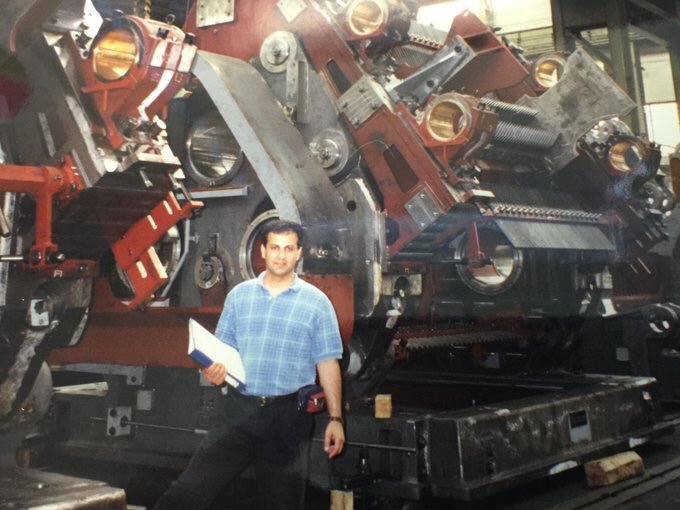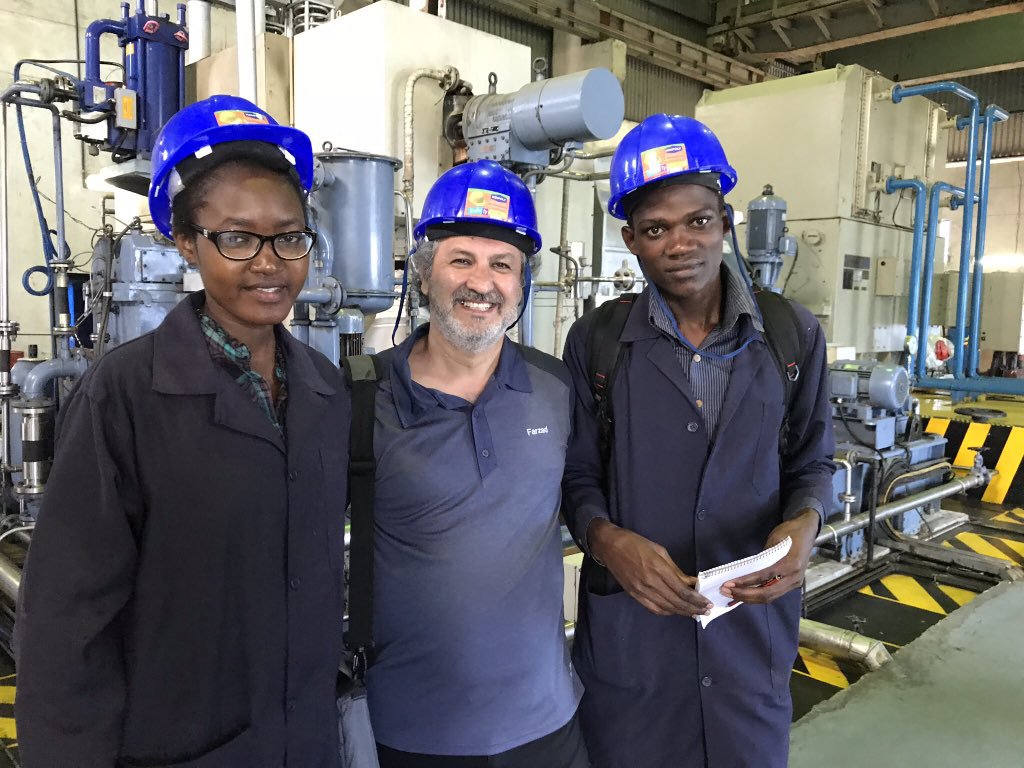We have a new volunteer team for the next two years with 40 members from 28 countries and speaking more than 20 different languages. In this chapter of our volunteer series, you can read Dr Farzad Rayegani’s story from Iran and Canada! He is our senior volunteer and studied and worked in Hungary between 1987 and 2000. Now, he is the Senior Dean at Humber College, Toronto and here you can read his exciting way to this title and job.
You studied here before the Stipendium Hungaricum Scholarship Programme. Why did you choose Hungary and the University of Miskolc?
It was around 1986 when I decided to study abroad after being in a war zone for more than 8 years. I wanted to be in a safe and friendly country while I could study in English so I looked up my options and I found the University of Miskolc with an engineering program. This was the best decision I had in my life.
How did you like your studies? What was your favourite memory during your studies?
Between 1987-2000, I studied mechanical engineering and received two MSc degrees and a Ph.D. My life in Hungary for 13 years was the best time of my life. Working with Prof. Tóth Tibor at the Faculty of Mechanical Engineering and Informatics was the best time in my carrier. He was like a father to me, he was both my academic advisor and my mentor in life. We travelled a lot together and wrote so many scientific papers and presented them at different international conferences.
How did you like the country?
Simply, I consider Hungary as my home (I am a citizen of Hungary). I felt at home during the 13 years I spent in Hungary. Hungary is the heart of Eastern Europe. I think Hungary is a beautiful country with very safe places and friendly people. It took a few years for me to learn the language and understand the culture but from day one, I felt at home.

Did you have any difficulties with the Hungarian culture? What was that and how did you handle it?
I did not really have any problem with exploring a new culture. When you are open-minded, you consider every opportunity to learn and that was my situation back then. I was learning the Hungarian language while I studied in English and that helped me to connect with people faster and enjoy Hungarian culture.
What are you doing now and how did you get to Canada?
I am the Senior Dean of the Faculty of Applied Sciences and Technology at Humber College, Toronto, Canada, and Co-Chair at the National Council of Deans of Apprenticeship, Trades, and Technology (NCDATT), but simply I am a global educator and understand the importance of higher education in quality of life. I immigrated to Canada in August 2000 to continue my journey as a global educator after having wonderful 13 years in Miskolc.
You are among the alumni volunteers. Why did you apply for that position? What's your task and how do you manage it?
As a professional Engineer and Global Educator, I fully understand that today’s skills-based and knowledge-based economy requires highly qualified skilled leaders who are able to address 21st-century challenges. I joined the International Alumni Volunteer Program to mentor and support the next generation of leaders who care about the quality of all kinds of life on the planet. Most of our graduates from universities have to choose between academia or working in the industry. I am happy to have discussions with Alumni members and mentor them, so they find their way going forward in their carrier.

What do you think about the Alumni Network Hungary?
Alumni Network Hungary is a lifelong learning ecosystem with four essential components: 1) Alumni who contribute and use it 2) Learning resources that are available for use 3) Technology that facilitates learning 4) Environment or context where learning happens. Alumni Network Hungary provides the best combination of learning activities, at the right time, in the flow of work or life, and an enabling environment for learning growth.
You held a webinar last week in the frame of Alumni Network Hungary about the engineer’s impact. Why did you choose this topic? What was your experience and how did you like the webinar?
Today’s knowledge economy requires engineers who are creative problem solvers and whose ideas and innovations help shape the future. In order to educate globally capable engineers who are not only technically savvy, but socially competent and business smart, leaders in engineering industries should have identified specific fields of knowledge, skills, and attitudes. Engineering education must, at the same time, create curricula that inspire innovation and creativity. A systematic approach is needed to help train “ready to work” engineers. I chose this topic to discuss with future leaders to help them to understand how to integrate a comprehensive set of personal and interpersonal skills; process, product, and system-building skills with disciplinary and interdisciplinary knowledge.